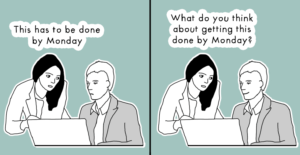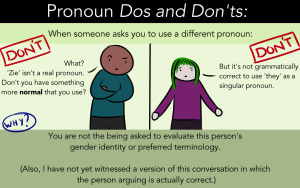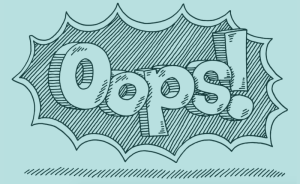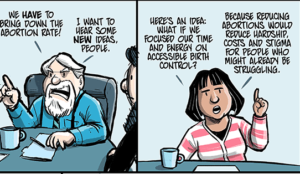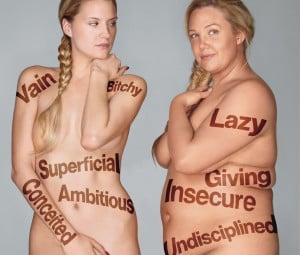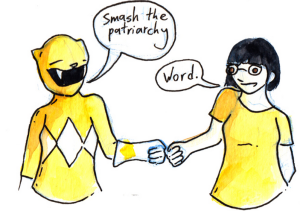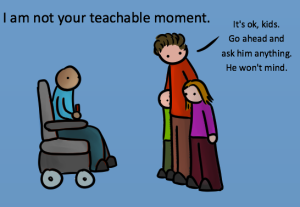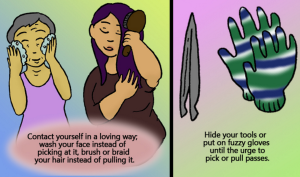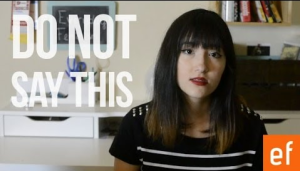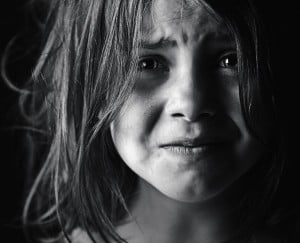
Source: Liberty Beacon
(Trigger Warning: Child abuse and neglect)
When it comes to addressing domestic abuse and working to eradicate it, feminism has played an integral role.
Calling attention to violence within relationships, setting up women’s shelters, and creating education programs geared toward understanding the cycle of abuse are all key things that feminism can be proud of.
But there’s one area of abuse that doesn’t get enough recognition in the movement: child abuse – especially child abuse committed by women.
In 2012, Child Protective Services estimated that 686,000 children were victims of maltreatment in the United States — or 9.2 per 1,000 – and over 80% of the perpetrators of these crimes were the children’s parents. And of this number, 88% were biological parents, not step- or adopted as many of us have been taught to believe.
In addition, 45% of the total number of perpetrators were men. And 54%? Women.
Surprised? I was, too.
After all, we have been conditioned to believe that the majority of people who commit abuse are men.
But this isn’t necessarily the case.
True, men are historically more likely to commit violent crimes. But child abuse comes in many forms — physical, sexual, emotional, and neglectful. And in the majority of child abuse cases (78%), the victims suffer from neglect, which women are more likely to commit.
These numbers – not to mention the psychological damage – indicate that the concept of females as perpetrators of child abuse is not something that the feminist movement can continue to ignore or downplay.
Rather, it’s something that we need to actively combat.
There are several key reasons why the feminist movement must recognize the fact that women, too, can be abusive. Here are five.
1. Intersectionality Means Recognizing the Marginalization of Children and Working to Eradicate It
As modern, third-wave feminists, we promote the study of intersectionality — the fact that different forms of oppression and privilege intersect to form the identity of an individual, and each individual’s life experiences vary based on this identity.
And although ageism is one of those forms of oppression, it’s usually discussed in terms of discrimination against older individuals, not younger ones.
But to claim ourselves as truly intersectional, we must work to eradicate the marginalization of both the old and the young.
We must recognize that children’s role within an abusive or dysfunctional family unit may place them at a distinct disadvantage, wherein they must follow the rules established by an authority figure who makes all the rules and maintains control through abuse of power.
We must acknowledge that within this role, children are not respected, are looked down upon, and often have no voice.
And ignoring the abuse of children only reaffirms that we believe they should not have a voice, that they do not matter.
It victimizes them all over again.
And this is unacceptable.
2. Women Are Not ‘Natural Caretakers’
Part of the reason why it’s hard for society to accept the fact that women can be abusive is because of the stereotype that we are natural caregivers — that our main goal in life is to get married and raise children, and that we will automatically be good at it.
It is hard for us to fathom the idea of The Mother — the ultimate role for a woman to have in society — could even conceive of harming her child.
And I will admit, it’s difficult for me to imagine as well.
But we must acknowledge that it does happen.
In fact, because society says women should take care of children, that can put them more in a position to have more opportunity to be abusive and neglectful.
So not only must we acknowledge it, we must confront the issue head-on and work to put an end to it.
And ignoring the fact that women can be abusive too reinforces this harmful stereotype, which only serves to uphold the patriarchal standards that we are fighting against.
3. Women Who Sexually Abuse Children Are Criminals, Not Seductive Temptresses
We all are quick to acknowledge that when a man commits sexual abuse against a child or teenager, he has engaged in a criminal act. Not so with women.
Often, women who commit sexual abuse against boys, especially teenage boys, are cast as the older, more experienced Mrs. Robinson — or, in the case of my generation, Stifler’s mom — who are showing these “lucky” boys their sexual ropes and helping them come of age and shed their sexual inexperience.
Unfortunately, this older-woman-as-seductress trope is so ingrained in our culture that only recently have we begun to dismantle it.
In light of the recent cases of schoolteachers committing sexual crimes against their students, South Park created a parodic episode to shed some light on the ridiculousness of this double standard, showing how society jumps to defend these women, instead of recognizing that they are criminals, just like the men who commit these same crimes.
(That’s not to say that we don’t want to help these women understand that what they did was wrong instead of simply vilifying them, but we must acknowledge the criminal nature of the acts all the same.)
But we still have a long way to go to acknowledge fully that anyone who engages in sexual acts with children is committing a crime.
4. Matriarchy Is No Better Than Patriarchy
Although the concept of a societal form of matriarchy ever existing in cultures has long been disputed by anthropologists, matriarchy can still exist at the micro, familial level (i.e., rule by women) and it is no better than patriarchy.
Patriarchy and matriarchy (and any other “-archy”) are about who holds the control and power.
And a situation wherein a central authority figure exerts control over others without regard to their voices, needs, and feelings is never a good thing, regardless of gender.
Familial relations with children should consist of teaching, listening, growing, and learning from each other. In an abusive situation, these things are not happening.
We need to accept that power within a family is about who controls whom and not liken it to some notion of gender essentialism around men.
5. Survivors Should Feel Free to Embrace Feminism, Not Feel That It Has Failed Them
In preparing to write this article, I was reading through some stories of child abuse survivors.
And of the survivors who had been abused by women (usually their mothers), a common theme emerged: They all felt uncomfortable telling others about the abuse because they knew that no one would believe them.
And while this is common for survivors of all types of abuse, what’s important to note here is that those who did tell someone were ignored or written off – supposedly because “women don’t do that.”
One particular story stuck with me.
A woman, now in her 70s and living in the UK, was abused by both her father and her mother when she was a child. Like others, when she tried to confide what was going on to others, she was dismissed or ignored.
And she says that feminism has failed her.
She feels that it is quick to focus on men as perpetrators of all evil in the world and ignores the fact that women be perpetrators, too.
When speaking about her mother’s abuse, she says, “She indulged in a particular kind of soul murder – and it was her cruelty that, even 60 years on, still reduces me to tears and leaves me convinced that feminism is a cynical, misguided ploy.”
This makes me beyond sad.
Because while this woman’s understanding of the movement speaks more to second-wave feminism’s lack of regard for anyone other than the rights of white, middle-and-upper class women, and its tendency to cast all men in the roles of automatic oppressors, she still makes a valid point.
The modern feminist movement needs to ensure that it is all-inclusive – that it embraces the needs of everyone, that it doesn’t just focus on domestic abuse, or the abuse of children by fathers in relation to the domestic abuse of their mothers.
We need survivors to feel free to embrace our movement and use it to work toward their personal healing, not feel that it doesn’t include them or write it off as a “misguided ploy.”
***
Although feminism has obviously done a lot for survivors of domestic abuse, we need to work on including parental abuse of children as one of our priorities.
Only then can the movement be truly inclusive.
[do_widget id=”text-101″]
Shannon Ridgway is from the great flyover state of South Dakota (the one with the monument of presidential heads). In her free time, Shannon enjoys reading, writing, jamming out to ’80s music and Zumba, and she will go to great lengths to find the perfect enchilada. Follow her on Twitter @sridgway1980.
Search our 3000+ articles!
Read our articles about:
Our online racial justice training
Used by hundreds of universities, non-profits, and businesses.
Click to learn more






